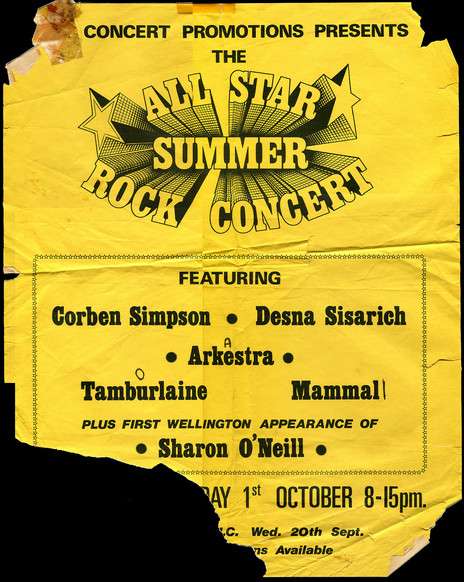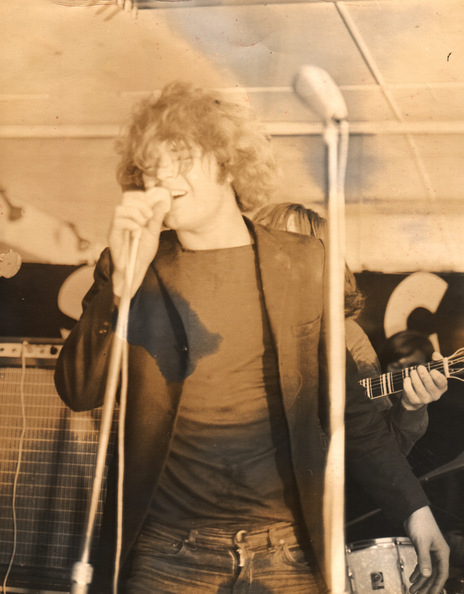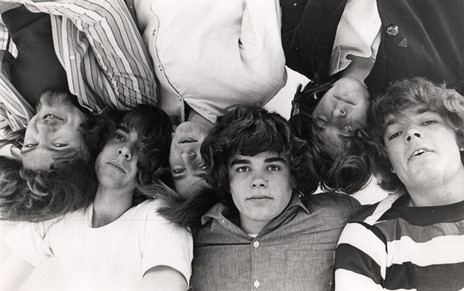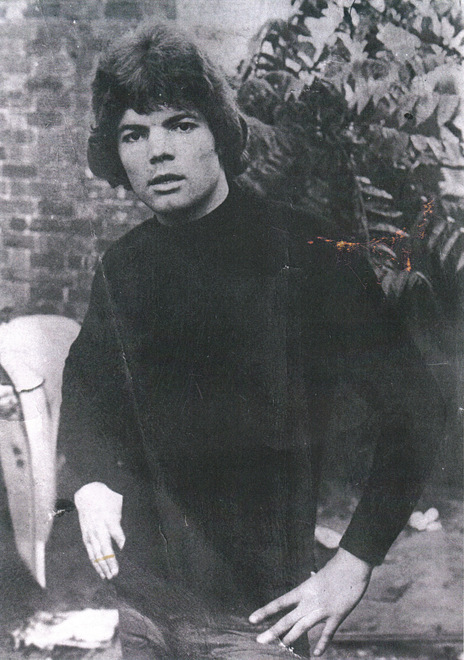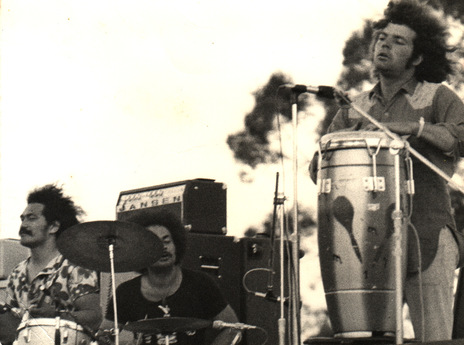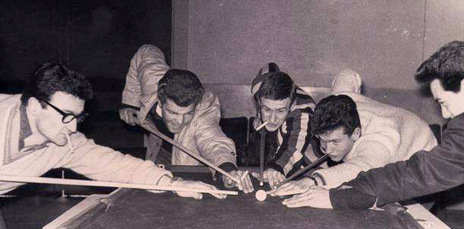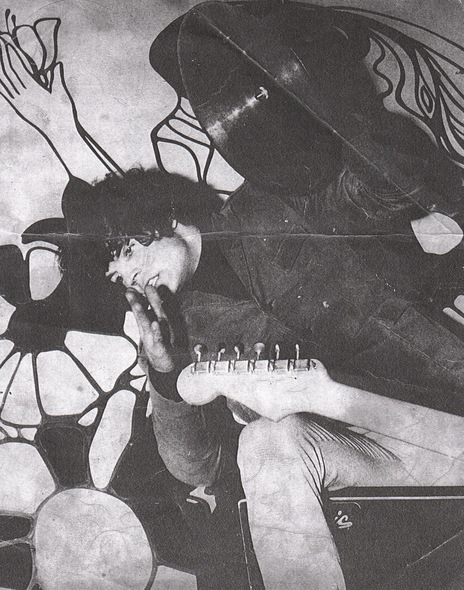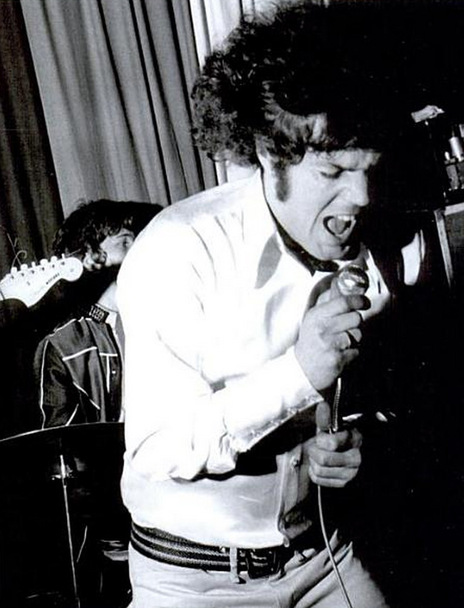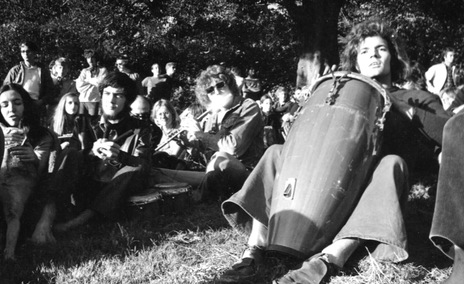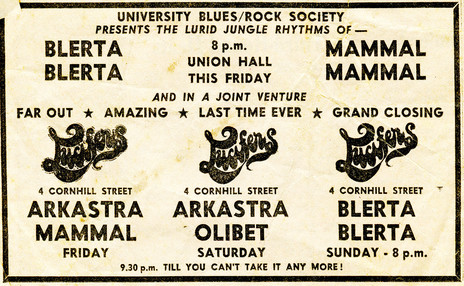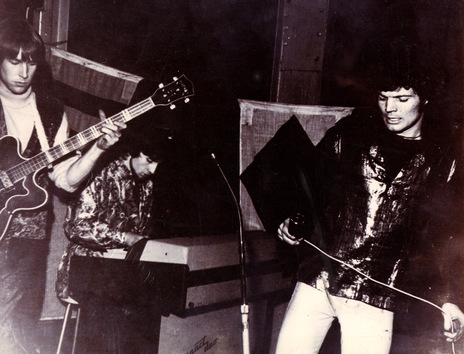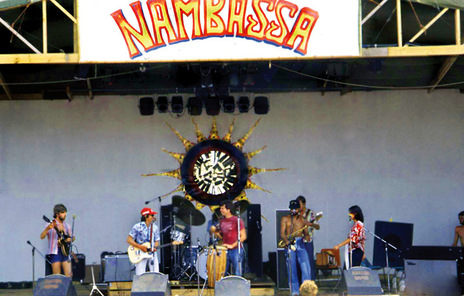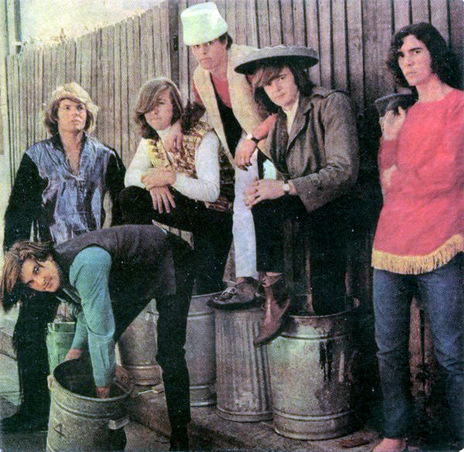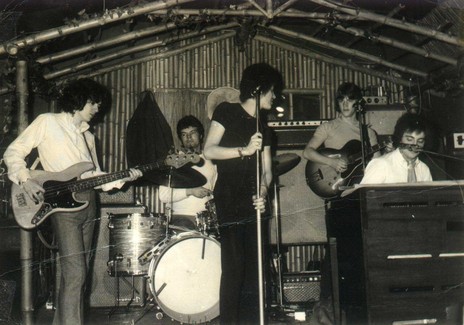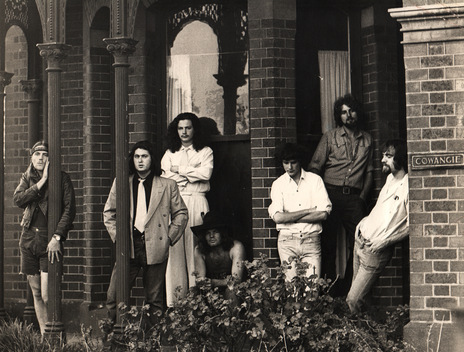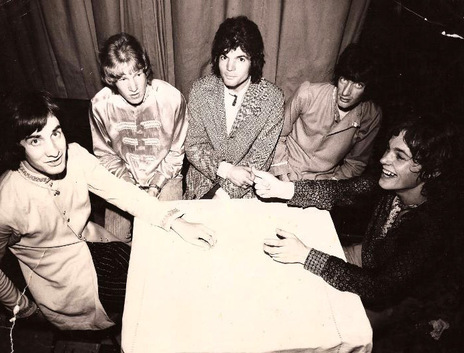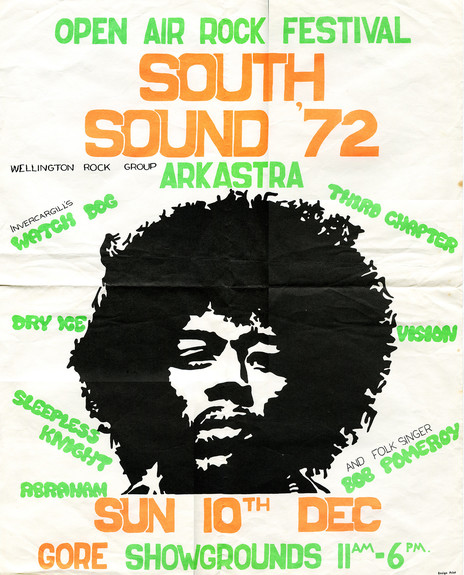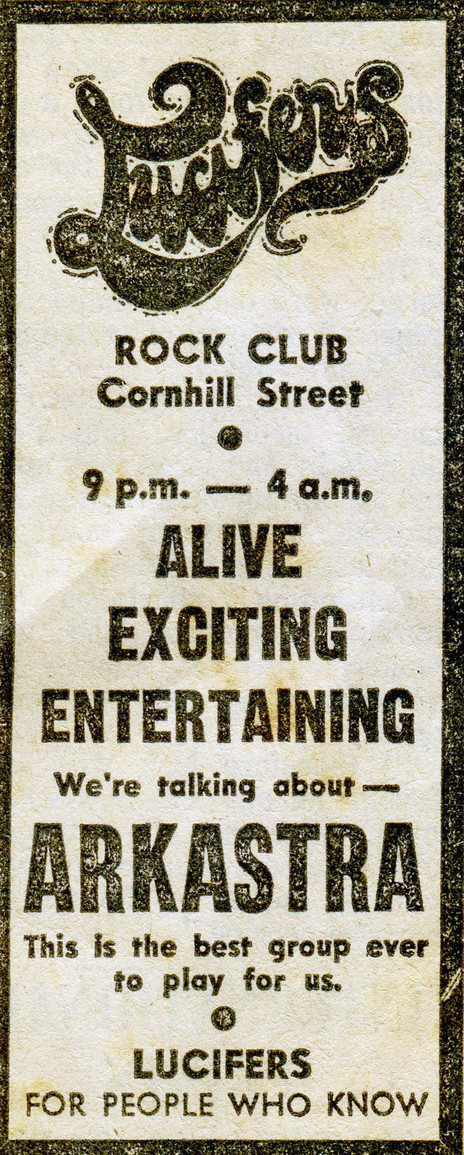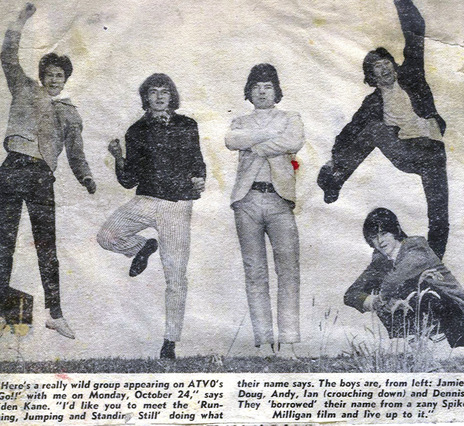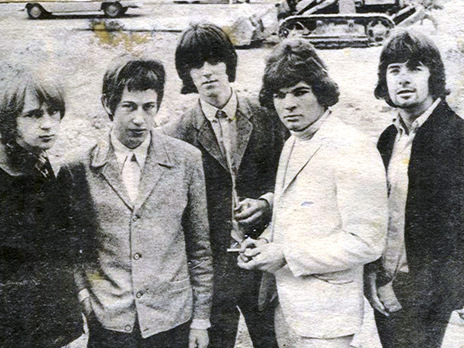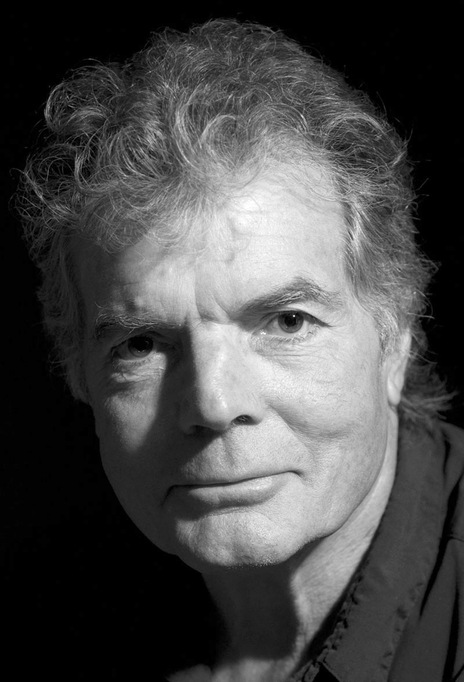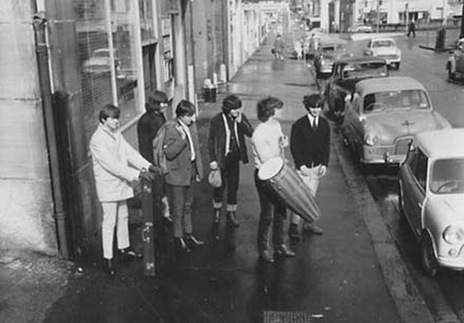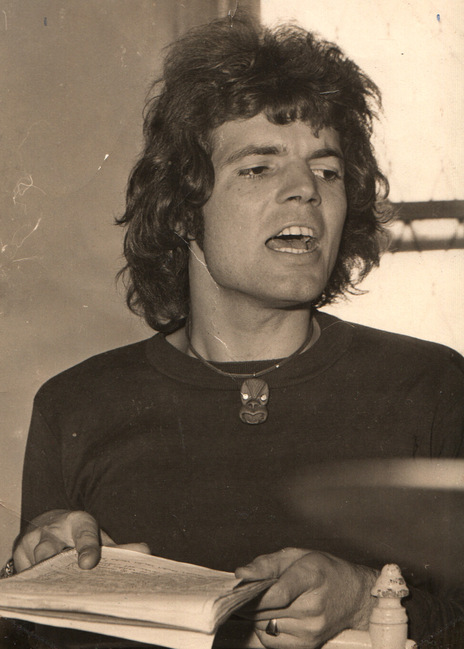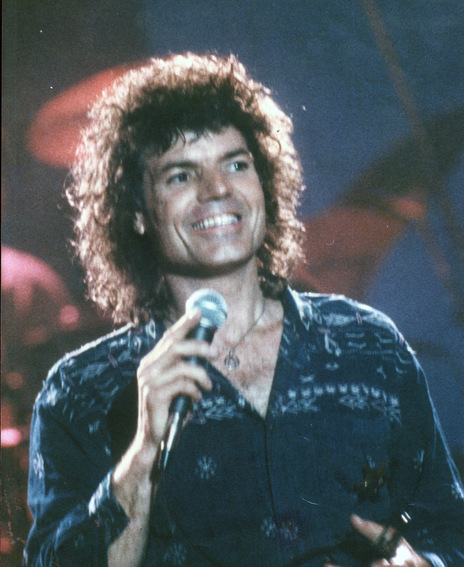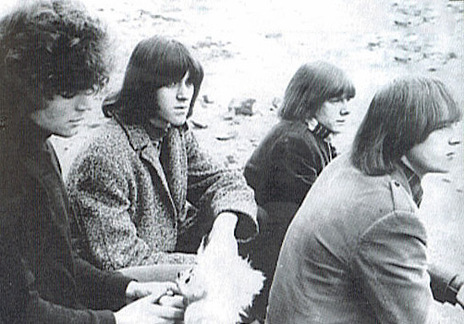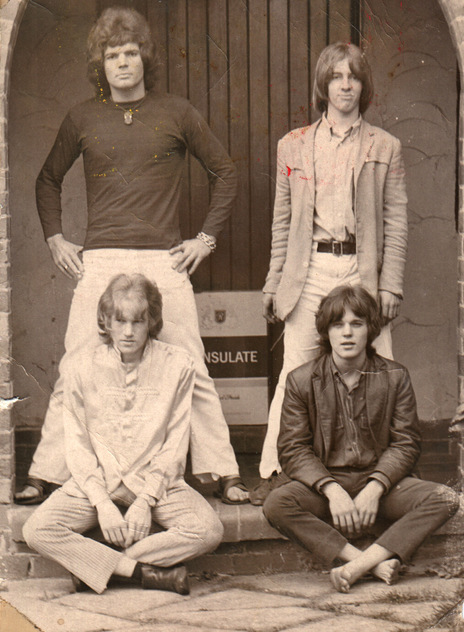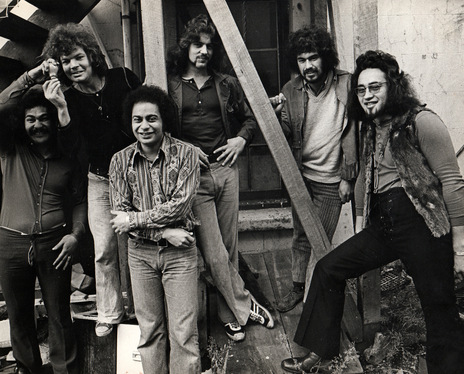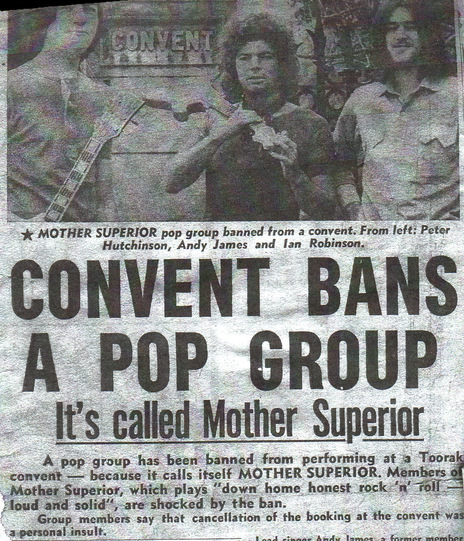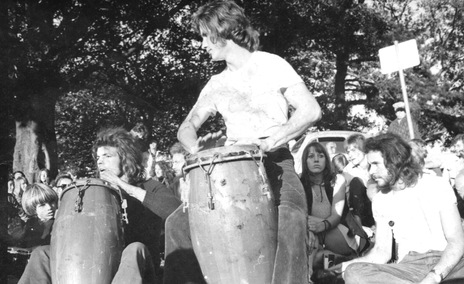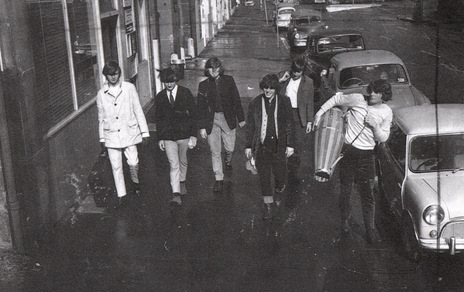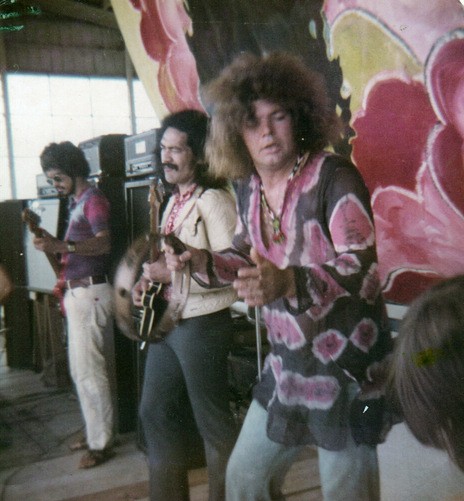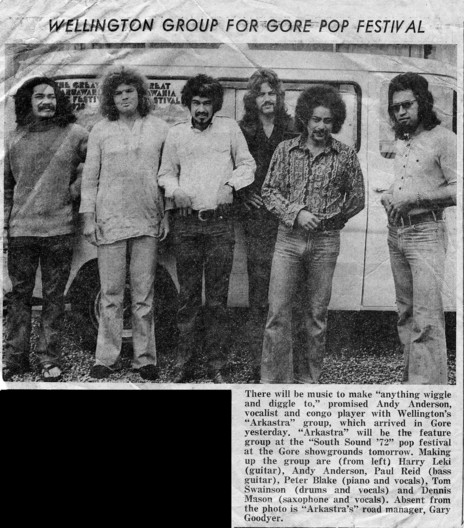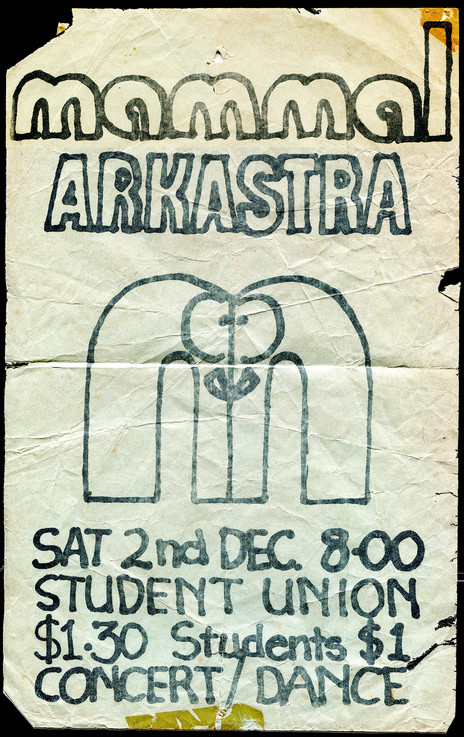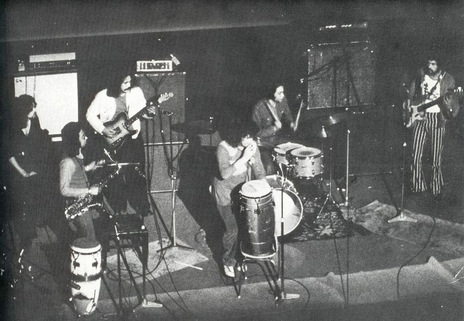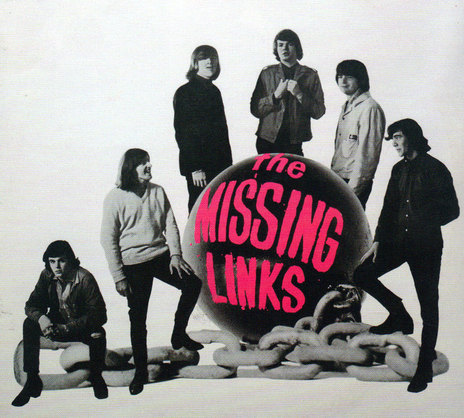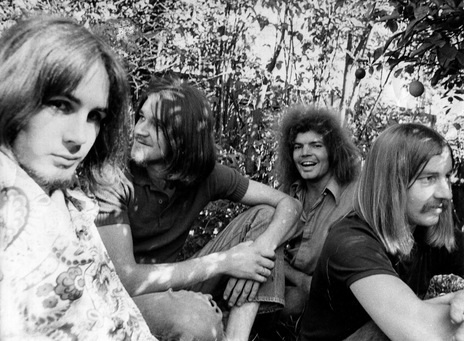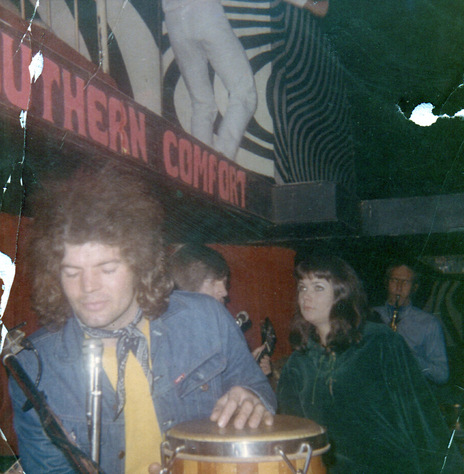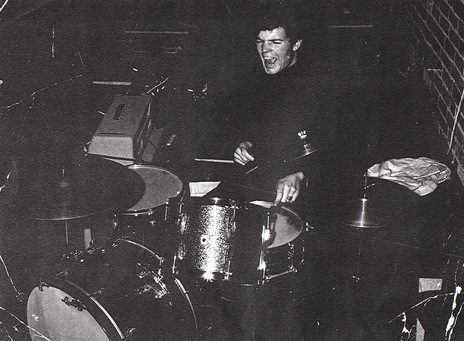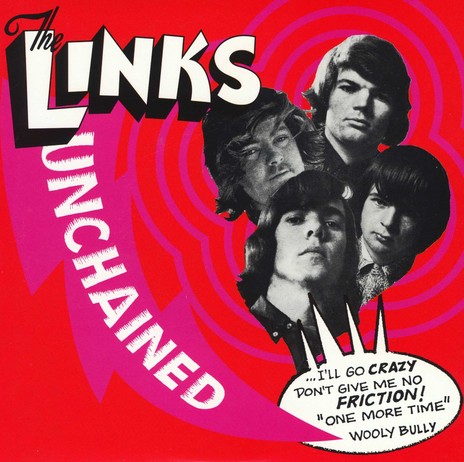Andy Anderson was a refugee from the teeming suburbs of the Hutt Valley. He had recently arrived in Sydney after playing in rock and roll and pop bands throughout his early teens as a Naenae College student, with Mike and the Beavers and The Corvairs. The Beavers did some R&B, the new style coming through. Andy loved the New Orleans sound of Fats Domino and Little Richard's band. Ray Charles also impressed. With The Corvairs, he played mainly pop and appeared on Pete Sinclair's Let's Go television show drumming and singing The Kinks' ‘You Really Got Me’.
in 1964, aged just 16, he loaded his green sparkly Ludwig drums on a boat for Sydney.
Quite a buzz for a teenage state house kid, you'd think. But Anderson was bored with the youth club and teen dance grind out in the Hutt Valley. Wellington might have offered some alternative excitement, but its clubs – The Coachman in Cuba St, the Trades Hall, and the Mexicali – remained out of reach, banned by his parents. So his eyes lifted to another city, London.
Andy wanted to check the source of the energy that was invigorating the pop scene. So in 1964, aged just 16, he loaded his green sparkly Ludwig drums on a boat for Sydney. It was the first stop, he thought, on his way to England.
In Sydney, he changed his name to Andy James and fell in with a bunch of bluesy long hairs called The Missing Links. Anderson: "They were wild, as in head turners on the streets. Pete [Anson] and John [Jones] had the longest hair I'd ever seen. I had reasonably long hair, but these guys had shoulder length hair. They were playing a lot of Lead Belly and old R&B stuff that I'd never heard."
Anderson joined The Missing Links after they released their only Parlophone Records single, ‘We 2 Should Live’ backed with ‘Untrue’, by which time the line-up was Ronnie Peel (bass), Dave Boyne (soon to be replaced by John Jones) (guitar), Pete Anson (guitar) and Bob Brady up front.
Anderson: “We used to play a wild pub opposite Darling Harbour that was full of early beats. I loved that place. I'd never seen anything like it. I first met Chris Gray (future Missing Link and sometime roadie) there. He was playing a guitar and harp like Dylan."
Gray was a dope smoking rich kid with bohemian leanings, but he slotted right in with James, who was living a similar-styled life in Kings Cross, Sydney's red light district. They were all frequent visitors of the Royal George, the beat friendly pub Anderson describes above.
It was an exciting place to be, as Richard Neville recalls in Hippie Hippie Shake:
"One Friday I ventured in. Smoky alcoves; the juke box blasting Roy Orbison's ‘Working For The Man’, paperbacks of Kafka and Camus protruding from pockets, people in black sweaters espousing free love. Then suddenly sirens, Black Marias and the pub was surrounded by police, supposedly checking for under-age drinkers, but probably goaded by the pervasive whiff of anti-authoritarianism. A big word much in favour at the time for being a rebel without a cause. The ‘George’ was one of the few pubs a long-hair could enter without inciting an Ocker's thump, the fearsome king-hit."
No doubt that last bit appealed greatly to the long haired Missing Links.
By mid 1965, Sydney's R&B pioneers The Missing Links were in disarray. The band had run its course and members were jumping ship for family and other bands. Pete Anson went on to play guitar in Jeff St John and The Id while Ronnie Peel joined the soon-to-be NZ bound Pleazers. Which was bad news for the outfit's newest recruits, guitarist John Jones and drummer Andy James.
Undeterred, Jones and James set about forming a new Missing Links. It was to be quite a second wind. Bob Brady stuck around on vocals for a short time, and Chris Gray joined playing keyboards, harp and guitar. From The Showmen came wild drummer Baden Hutchens and hard-edged bass player, Ian Thomas, both of whom wanted move to a tougher sound.
They were suburban boys compared to the trio's urban bohemian origins, which would prove an uneasy mix in the long run. But for now they were gearing up, and with the addition of guitarist Doug Ford, they were ready to play.
Ford, a relatively clean-cut rocker who James and Jones had run into in a local music store, was a friend of original Missing Link David Boyne.
With Hutchens on drums, Anderson moved to vocals, which he shared with Chris Gray. He also began to play around with congas, influenced by the African Drum Ensemble’s Babatunde Olatunji and the Drums of Passion album.
His rafter swinging and stage dismantling exploits are the stuff of legend, as was the band's increasingly wild appearance and provocative stage wear.
The new look Missing Links settled into regular gigs at Susie Wong’s and Beatle Village in Kings Cross, supplemented by occasional Surf City shows. The shows are as big a part of The Missing Links legend as their recordings; for Anderson they were the most important part of the band. His rafter swinging and stage dismantling exploits are the stuff of legend, as was the band's increasingly wild appearance and provocative stage wear.
Anderson remembers a typical show. "We packed out Susie Wong’s. We were a real joke to a lot of them, but the fans who did come down were die hard, real fired up. We'd play ‘Mama, Keep Your Big Mouth Shut’ for thirty minutes or for as long as the instruments would last. You'd have Doug Ford driving his guitar into the PA system and me with the mic in the PA system, underneath cymbals and bashing shit out of a conga drum, making ringing sounds, with John Jones feeding back for I don't know how long."
James found other pleasures close at hand. He was introduced to pot at the club. The harsh realities of life as a sixties long hair also came home. Chris Gray is rumoured to have carried a rifle to gigs for protection. Anderson can't confirm that, but acknowledges they were risky times.
"People were getting beaten badly around the place and some could have carried weapons, but I never did. But out at [Sydney suburb] Bankstown we only just got away. Bob Brady booted this guy in the face after he'd leant over the stage and yelled ‘yew fooken gurls’ at us. We didn't think we'd make it out."
The inner city could be just as risky and conflicts with sharpies, sworn enemies of the long hairs, were constant and violent. It took a toll on the band, as Ford recounted to Australian rock historian Dean Mittelhauser in 1989.
"You were considered to be a poof and that was it. Just easy pickings for the gangs. I know it got to Andy after a while, to the extent he got very nervous and developed a nerve problem. Just from tension all the time."
To the band's surprise, they quickly scored a record deal with Philips Records, who were beginning to venture into the Australian teenage pop market. It took them barely a week to record their first two singles and debut album. Anderson contributed vocals to some tracks and two songs to the project. Anderson: " ‘Wild About You’ I wrote when I was there. I planned a bigger sound for it, but it ended up sounding a bit tinny on the record. ‘Speak No Evil’, I wrote at the studio, and Hutch had ‘You're Driving Me Insane’. He had the chords and he wanted me to sing it. He wanted John's feedback and jungle type drums."
One of the album's standout tracks was the mysterious ‘H'tuom Tuhs’, the best example, says Anderson, of the “jungle/ space” sound he wanted for the band. It was in fact, ‘Mama Keep Your Big Mouth Shut’ backwards. The Links had heard their original played backwards in the studio and liked it so much they insisted on including the backwards recording on the album.
Philips, you'd think, would have left it at that. But the conservative label went one further. In what must be one of the weirdest pop events of the era, Philips released ‘H'tuom Tuhs’ over two sides of The Links’ third single. Why? Andy has a theory that it had something to do with trying to recreate their live sound on single.
Despite the quick success of the second Missing Links, things were rocky within the band.
Despite the quick success of the second Missing Links, things were rocky within the band. Gray's and Anderson's dope smoking and desire to do original songs was causing divisions with the more professional Hutchens and Thomas, who wanted the band to clean up its act.
Or put another way, wanted the band to alter all the things that their legend would be based on – untamed behaviour and searing, feedback spitting originals. Like Anderson later said, chalk and cheese. The Missing Links broke up during the recording sessions. Thomas and Hutchens returned to The Showmen.
When the band's final recording, The Links ... Unchained EP appeared, they were down to a four piece with Anderson drumming. Then Chris Gray dropped out of sight and John Jones went overseas. He would turn up years later in Los Angeles writing and directing Amityville Horror 3.
Doug Ford and Andy James, despite arguing frequently, decided to carry on, but not in Sydney. Having already visited Melbourne and its thriving R&B and club scene, they upped and moved there, and formed the equally wild and respected Running Jumping Standing Still with former Pink Finks bassist Rick Dalton and drummer Ian Robinson.
It was a typically impulsive move. Running Jumping Standing Still picked up where The Missing Links left off. On stage, the band tore it up like few others, and in a hint of Anderson's future career as an actor, added theatrical elements to their shows. While performing their Melbourne hit single ‘Diddy Wah Diddy’ on The Go! Show in April 1967, Anderson ended the song with an "execution" of the band.
Offstage, the relationship between Doug Ford and Anderson was strained, as it had been in the days of The Missing Links. Anderson's departure from the band would be swift and tragic.
"We were playing the Thumpin' Tum and we were pushing it. I was getting these headaches and was singing ‘River Deep, Mountain High’ and ended up getting a haemorrhage and collapsing on stage with this blinding headache. I was in hospital for a month and that was the end of that."
Running Jumping Standing Still carried on without Andy, recruiting Peter Newing (ex Pleazers) on vocals. When Anderson emerged from hospital he was a changed man. "After the haemorrhage I really got into the booze and drugs. I didn't know what had struck me."
His first new band was the aptly named Andy James Asylum, a commercial R&B band with Doug Laverty (drums) and Alan Jones. He followed that with Mother Superior, an experimental outfit mixing R&B players with brass players.
Back in Sydney, Anderson joined The Action (ex Auckland) on drums. A stint with the Australian production of Hair followed, further whetting Anderson's appetite for the stage.
Offstage, Anderson's personal decline continued. Bands such as Southern Comfort, and events and years were blurring into each other, until Anderson was told by Kings Cross heavies to get out of town. NOW.
Andy Anderson's long on-screen career started with in 1975 when he was the first presenter on NZBC music and pop culture show Grunt Machine.
He did, returning home to Wellington in late 1971, where he quickly joined the local underground blues-rock scene alongside bands like Mammal and Highway.
In early 1972 he formed Arkastra, which featured Harry Leki (The Simple Image), Dennis Mason (The Quincy Conserve), Tom Swainson (Tom Thumb, Farmyard) and future Ready To Roll musical director/ producer Peter Blake.
With out-there covers that ranged from standard blues to Zappa and Beefheart, they were residents at Lucifer’s and the Downtown club and toured the South Island in an old bus, financially buoyed by a hefty fee for a one-day festival at the Gore Racetrack. Arkastra played a well-received set at the Great Ngāruawāhia Festival, 6-8 January 1973, before calling it quits.
Anderson kept singing through the 1970s. In 1973 he often sang with boogie band Don Burke’s Decent Chaps at Ziggy’s in Wellington, and in 1975 he performed with theatre/ music ensemble Red Mole (future Coup D’Etat member Jan Preston was key among its members). In 1975 he founded the Andy Anderson Express, a 12-bar boogie band. Its other players included future Crocodiles founders Fane Flaws (who had just parted company from BLERTA) and Peter Dasent.
Andy Anderson's long on-screen career started with in 1975 when he was the first presenter on NZBC music and pop culture show Grunt Machine. While there he helped to convince NZBC producers to give BLERTA a 20-minute TV special.
Anderson's acting career began in 1978 with Radio Waves, a local drama about DJs at a radio station, produced by South Pacific Television. From there his roles had him hopping the Tasman for a mix of shows including Gloss, Roche, The Sullivans, Marlin Bay, Halifax F.P., and plenty more. He's been in films as well, both feature length and short, and recently appeared in a 2012 short film by Joe Lonie (Lonie is also the bassist in Supergroove) called Honk If You're Horny.
That's where we leave Andy Anderson. The former wild man of Australian R&B has been a sober alcoholic for many years and anyone with a TV set in Australia and New Zealand will know Andy as a popular, in-demand actor. He's still a working and creating musician, and is now based in Los Angeles.
